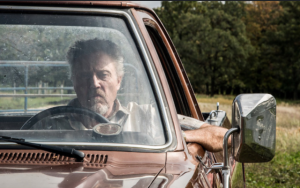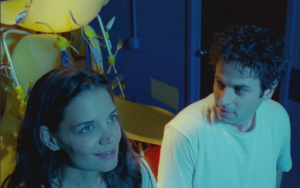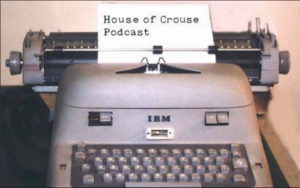Touched with Fire stars Katie Holmes and Luke Kirby as two poets with bipolar disorder. It’s the work of Paul Dalio who wrote the screenplay, directed, edited and even wrote the musical score.
“The film was kind of a metaphor for my story,” he says. “It was my struggle to come to terms with all this beauty that I found in this thing and all this horror I found in this thing. And how you reconcile that. It took the form of these two lovers who each represented a different aspect of it. As these two lovers pursue their love, it goes back and forth between agony and ecstasy. They have to come to terms with it.”
The idea for the screenplay came from a conversation with his wife Kristina Nikolova, a filmmaker he met while studying film at New York University’s Tisch School of the Arts. The pair were in Bulgaria nearing the end of production on her movie Faith, Love and Whiskey.
She asked him to write a story for her to direct and as she remembers he said, “How about two crazy people meeting in a psychiatric hospital and they have to basically choose between sanity and love?” She said, “Wow, that’s a great idea, but it’s your story,” and the seed for Touched with Fire was planted.
Dalio’s issues with mental health began when he was in his undergrad years for Dramatic Writing at New York University.
He describes breaking into a “hypomanic state when I was experimenting with marijuana,” which he used as a “creative catalyst.”
“I didn’t know at the time (that) if you have the bipolar gene and you smoke marijuana it actually pushes your mind into a hypomanic state,” he says.
“It makes you temporarily more creative with a quicker mind. At first it was thrilling. It got to the point where my fingers couldn’t keep up with my mind. I had to use a voice recorder. Then my thoughts started overlapping and my mind couldn’t keep up with my thoughts. I would go for runs with the voice recorder to try and speed my mind up to keep up with these overlapping thoughts.
“For a while my professors started to really praise my work, saying it was brilliant, which they never had before. I felt like I was tapping into some kind of divine illumination. I started to think I was experiencing God. Visions from God.”
Soon the creativity that once seemed like a gift “took the form of a demon that was inside of me. Possessing me, laughing at me and my mistakes.”
Dalio spent four years gripped by suicidal thoughts and manic behaviour until realizing, “I couldn’t put my family through that anymore so I had to resign myself to living numb on medication and just getting by.”
A meeting with author Kay Redfield Jamison, whose book Exuberance: The Passion for Life, explores the mind’s pathologies convinced him that he could live and work creatively on his medication.
“She said she experiences exhuberance all the time and I absolutely will if I am patient. She also said she doesn’t know one artist who isn’t more creative after bipolar than before bipolar, as long as they are on the meds.
“It changed everything, It gave me hope. I had something to fight for then.”
 Richard speaks to “CTV News at 11:30” anchor Andria Case about movies on VOD and in theatres to watch this weekend including the family friendly “The War with Grandpa,” the hilarious “The Forty Year Old Version” on Netflix and “Percy,” the farming drama starring Christopher Walken.
Richard speaks to “CTV News at 11:30” anchor Andria Case about movies on VOD and in theatres to watch this weekend including the family friendly “The War with Grandpa,” the hilarious “The Forty Year Old Version” on Netflix and “Percy,” the farming drama starring Christopher Walken.







